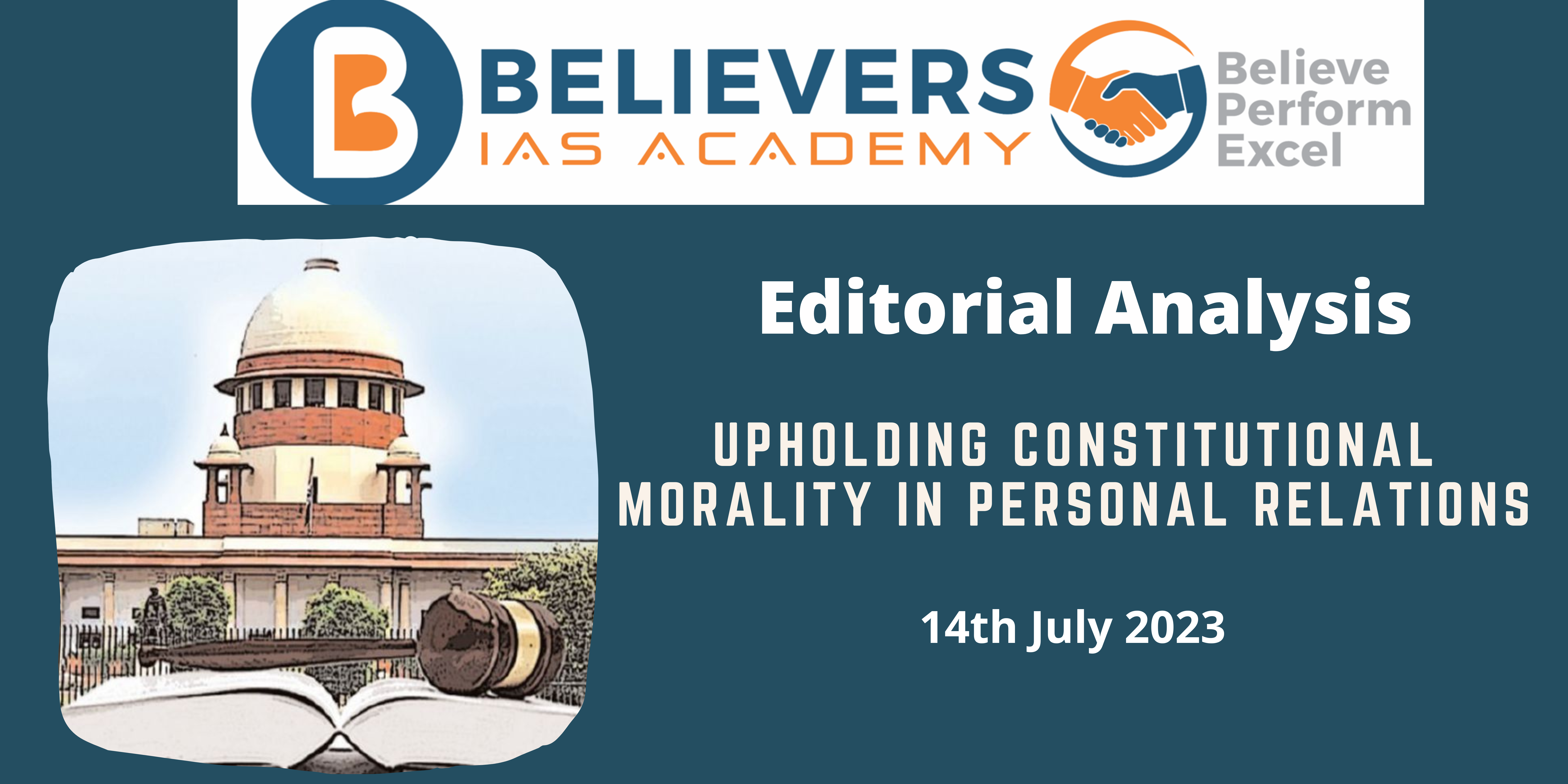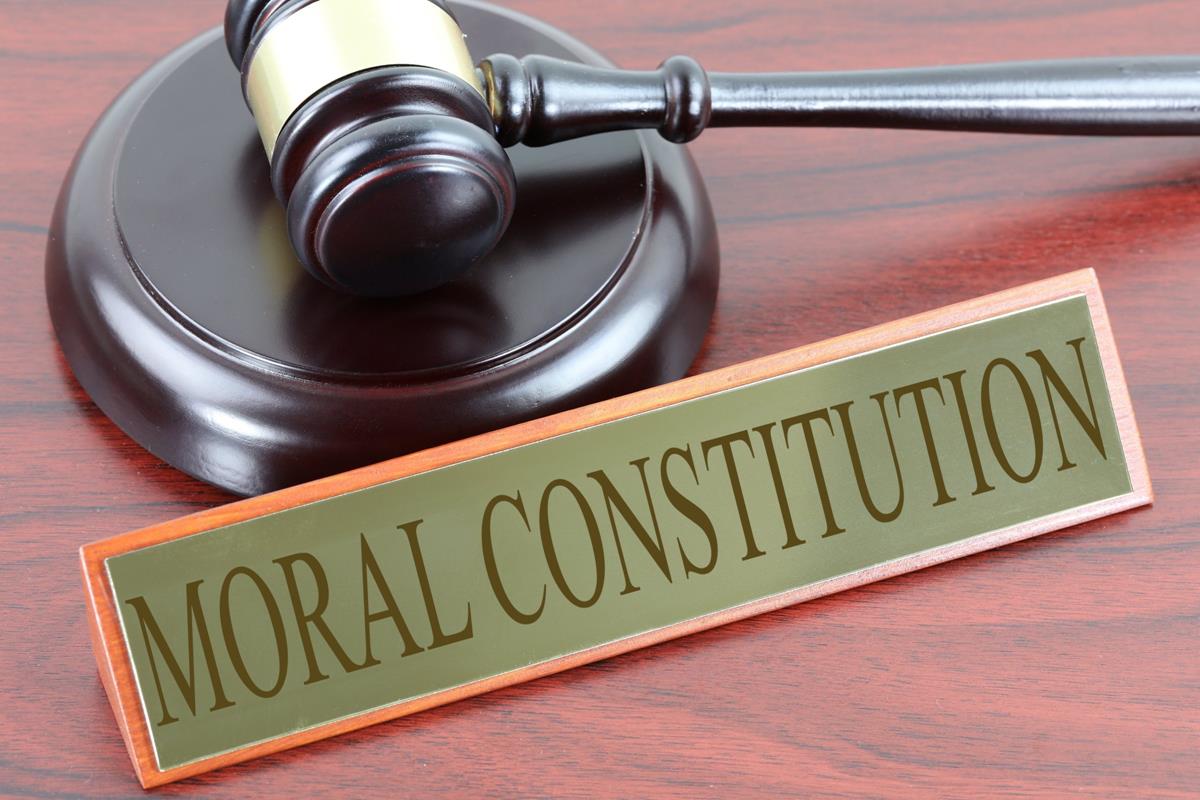Upholding Constitutional Morality in Personal Relations
Context:
A recent judgment by the Allahabad High Court has attracted national attention due to its refusal to grant protection from police harassment to an inter-faith couple involved in a live-in relationship.
Relevance:
GS-02 (Indian Polity- Personal liberty, Judiciary)
Prelims:
- Fundamental Rights- Articles 12-35
- Rule of Law
- Supreme Court
- Article 141
Mains Questions:
- Critically analyze the court’s reasoning and the conflict between conventional social morality and constitutional principles in the context of personal relationships. (150 words)
Dimensions of the article:
- The Petitioners’ Case:
- Unacceptable Departure from Constitutional Principles:
- Rejection of Supreme Court Verdicts:
- An Inclination towards Orthodoxy
- Supreme Court Verdicts and Fundamental Rights
- Upholding Personal Liberty
The Petitioners’ Case:
- The petitioners, a Muslim man and a Hindu woman, are living together based on mutual love and affection. They approached the court seeking protection from police harassment, alleging mistreatment by the local authorities.
- Their case was straightforward and aimed to uphold their fundamental rights.
Unacceptable Departure from Constitutional Principles:
- The judgment delivered by the High Court is unacceptable from a constitutional standpoint.
- The court seems to be swayed by conventional social morality rather than adhering to the principles of individual autonomy and personal liberty enshrined in the Constitution.
- Despite citing several Supreme Court judgments, the High Court discarded them using untenable reasoning.
- This disregard for precedents undermines the rule of law and the authority of the apex court.
Rejection of Supreme Court Verdicts:
- The Allahabad judgment questioned the intention of Supreme Court verdicts such as D. Velusamy (2010), Indra Sarma (2013), and Dhanu Lal (2015) regarding live-in relationships, asserting that they were not meant to “promote such relationships.” It also asserted that the law has traditionally been “biased in favor of marriage.”
- By rejecting the precedential value of these top court verdicts, the High Court demonstrated a departure from established legal principles.

An Inclination towards Orthodoxy:
- While there were deficiencies in the petition, the High Court should not have assumed that marriage is a prerequisite for constitutional protection and the exercise of fundamental rights.
- In effect, the court acted as a theological authority, disregarding the concepts of individual liberty and autonomy within its jurisdiction.
- This verdict reflects a clear inclination towards social orthodoxy and religious revivalism.
- Under the guise of constitutional adjudication, the court attempted to reinforce traditional beliefs on marriage and morality.
Supreme Court Verdicts and Fundamental Rights:
- The Supreme Court’s judgments on fundamental rights go beyond mere adjudication of disputes between parties.
- The law laid down by the Supreme Court is binding on all courts in the country, as mandated by Article 141 of the Constitution.
- Constitutional adjudication does not involve “encouraging” or “discouraging” social practices or personal conduct. For instance, in Joseph Shine vs Union of India (2018), the Court decriminalized adultery, emphasizing that the state’s police power should not be utilized to punish individual moral choices. Similarly, in Navtej Singh Johar (2018), while substantially striking down Section 377 of the Indian Penal Code (IPC) that criminalized same-sex relations, the Supreme Court engaged in constitutional adjudication rather than passing moral judgments.
- These landmark judgments uphold the libertarian values and limit the state’s interference in personal choices.
Upholding Personal Liberty:
- The Supreme Court verdicts cited in the Allahabad judgment also upheld personal liberty and established the law in this regard.
- In Lata Singh (2006), the Court directed police authorities across the country to prevent harassment of adults involved in inter-caste or inter-religious marriages.
- In S. Khushboo vs Kanniammal & Anr. (2010), the Supreme Court stated that while mainstream societal views may favor sexual relations within marriage, there is no statutory offense when consenting adults engage in sexual relations outside the institution of marriage. This was a mere restatement of existing law.
- The Allahabad High Court dismissed the observations made by the Supreme Court in these judgments, arguing that they were specific to the facts of each case and therefore not binding precedents. However, this does not justify the High Court’s disregard for the legal propositions established by the Supreme Court concerning fundamental rights.
Way forward:
- Upholding Constitutional Principles: It is crucial to reaffirm the importance of constitutional morality in personal relations, as repeatedly affirmed by the Supreme Court of India.
- Ensuring Consistency with Supreme Court Verdicts: Lower courts should align their judgments with the precedential value of the Supreme Court verdicts.
- Eliminating Biases and Irrelevant References: It is important to remove biases and irrelevant references, such as personal laws on marriage, from the judicial process when dealing with cases of live-in relationships.
- Judicial Discipline and Adherence to the Constitution: Lower courts should exercise judicial discipline and adhere to the constitutional tenets when making judgments.
Conclusion:
- The Allahabad High Court’s judgment, which denied protection to an inter-faith couple in a live-in relationship, represents a significant departure from constitutional principles. By prioritizing social morality over individual autonomy and personal liberty, the High Court has strayed from established legal precedents. This judicial inclination towards orthodoxy and religious revivalism undermines the foundational principles of the Constitution. It is essential for the Supreme Court to rectify this judicial indiscipline and reaffirm that the moral lessons of personal laws should not supersede constitutional tenets.




